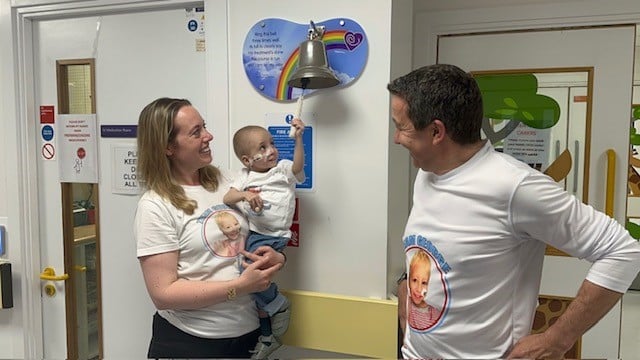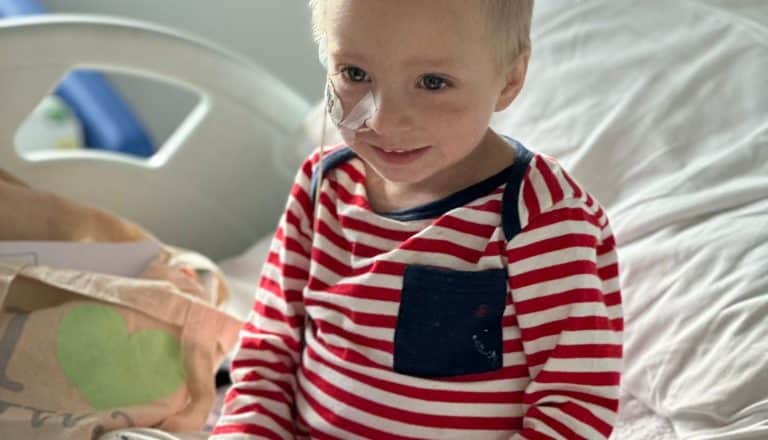The Officer Who Gave a Boy More Than Gifts—He Gave Hope.744
When 13-year-old Cameron felt his world closing in, he made a phone call that no child should ever have to make. Frustrated and hopeless after a fight with his mother, he dialed 911, not to report a crime, but because he felt he had nowhere else to turn. On the call, he whispered words that broke hearts: he didn’t want to live at home anymore.
South Carolina Police Officer Gaetano Acerra answered that call. When he arrived at Cameron’s home, the scene was stark. There was no bed for the boy to sleep on, no comforting place to rest after long days at school and the struggles of a home filled with tension. For Cameron, a bed—a simple bed—was something he had never had.
Seeing the young boy’s living conditions, Officer Acerra felt an undeniable tug at his heart. He realized that this was more than a family disagreement. It was a moment that required compassion, not punishment. He wanted Cameron to feel seen, valued, and safe—even if only through small gestures.

Officer Acerra went to work, reaching out to friends, neighbors, and local donors. By the next visit, he returned not as a law enforcement officer enforcing rules, but as a protector bringing hope. Behind him came a truck filled with gifts: a bed sturdy enough to give Cameron the rest he deserved, a desk and chair to create a space for homework and creativity, a TV and a Wii gaming system donated by generous community members who had heard Cameron’s story.
“My heart went out for him,” Officer Acerra said. “I thought the little things that he needed, I could give him, to make him a happier kid. I did it because I could. It was the right thing to do.”
For Cameron, that day changed more than just his bedroom—it shifted his perspective on the world. In a life that sometimes felt cold and unwelcoming, someone had seen him, listened to him, and acted in kindness. It wasn’t just about the gifts—it was about the message they carried: you matter, and you deserve care.
The story spread quickly, touching people far beyond South Carolina. Communities were reminded that heroism doesn’t always wear a badge, though sometimes it does. It is shown in the willingness to step into another person’s life and bring light where there was shadow.
For Officer Acerra, it was never about recognition or applause. “I think people should do things like this,” he said. “Sometimes we just have to act with compassion when we can. That’s all it takes to make a difference.”
And for Cameron, the memory of that day will last a lifetime—a reminder that even in moments of fear, loneliness, or despair, there is hope, kindness, and humanity ready to step in.
Through a simple act of generosity, a young boy found not only a bed to rest on but also a reason to believe in the goodness of people again.
George’s Fight: A Two-Year-Old’s Battle Against Rhabdomyosarcoma.1476

George was only two years old when his life, and the life of his family, changed forever.
On 3 August 2023, what began as unusual swelling, discomfort, and a stubborn lump led to a diagnosis that no parent ever wants to hear: rhabdomyosarcoma, a rare and aggressive form of childhood cancer.
Jonathan, his father, recalls the moment as if it happened yesterday—a mixture of shock, fear, and determination flooding through him.
“I couldn’t believe it,” Jonathan said.
“One moment, we were planning playdates and family trips, and the next, our little boy was facing a life-threatening disease.”
The first days after diagnosis were filled with questions, uncertainty, and sleepless nights.
George, though so young, faced doctors, scans, and procedures with a quiet courage that amazed everyone around him.
Jonathan remembers holding his son’s tiny hand and trying to provide comfort and reassurance, even when he himself struggled to feel any.
Treatment began immediately.
George underwent a combination of surgery, chemotherapy, and in some cases, radiation, tailored to fight the aggressive cancer.
The hospital became a second home almost overnight.
The constant beeping of monitors, the hum of IV pumps, and the gentle footsteps of nurses became familiar sounds in George’s new world.
Despite his age, George adapted remarkably well, showing flashes of his personality even in the midst of pain and fear.

The treatments were harsh, and the toll on George’s body was significant.
Nausea, fatigue, and discomfort were daily companions.
But through it all, George’s determination never faltered.
He smiled, he played, and he learned to find joy in the smallest moments—a colorful toy, a storybook, a gentle hug from his father.
Jonathan often says that his son’s courage inspires everyone around him, showing the strength of a tiny body and an even tinier heart facing an enormous challenge.
There were moments of despair.
Treatments didn’t always go as planned.
Some days, George cried inconsolably, frightened by the unknown.
But even in those moments, he showed resilience.
Jonathan and the family learned that courage isn’t the absence of fear—it’s moving forward despite it.
George’s everyday life was interrupted.
Playdates were paused, trips to the park became rare, and ordinary routines disappeared under hospital visits and recovery periods.
Yet George continued to grow, learn, and play within the hospital walls.
Every laugh, every smile, every small achievement became a milestone worth celebrating.

Jonathan emphasizes the importance of community and support.
“It’s not just about treatment,” he said.
“It’s about hope, love, and knowing that people care.”
Organizations that help children with cancer provided not only financial aid, but emotional support, allowing families like George’s to focus on healing and hope.
Despite everything, George’s personality shone brightly.
He loved music, colorful toys, and watching cartoons with his dad.
Even in the hospital, he found ways to laugh, play, and bring joy to those around him.
George became a symbol of courage and hope for everyone who met him.
Every milestone, no matter how small, was celebrated.
The first time he walked down the hospital corridor without assistance.
The first smile after a challenging procedure.
The first week without a fever or complication.
Each small victory reminded Jonathan and the family that life was precious, and that George’s spirit was unbreakable.
Jonathan and his family’s lives have been forever changed.
Jonathan has become a passionate advocate for childhood cancer awareness.
He shares George’s story to inspire others, raise awareness, and remind families going through similar battles that they are never alone.
He wants the world to understand that even the youngest children can face the hardest challenges with courage and grace.
George’s journey continues.
He still undergoes follow-up appointments, scans, and therapy sessions.
Each day brings new challenges, but also new victories, new smiles, and new reasons to hope.
His resilience reminds everyone that age is no barrier to strength, and that hope and courage exist even in the most difficult circumstances.
Supporting children like George ensures they have the chance to dream, grow, and live full lives beyond their diagnosis.
Every act of kindness, every donation, and every shared story helps families like Jonathan’s navigate these battles.
George’s story reminds the world that childhood cancer may disrupt life, but it does not define it.
Love, support, and determination define the child—not the illness.
George is more than a diagnosis.
He is a curious, joyful, and brave little boy, full of personality, laughter, and determination.
His journey has touched countless hearts and inspired hope in everyone who learns his story.
He reminds the world that courage is not the absence of fear, but the choice to move forward despite it.
As George continues to fight, the message is clear: childhood cancer does not define a child.
Hope, love, and community do.
Every milestone he reaches, every smile he shares, and every day he survives is a testament to his bravery and the love that surrounds him.
Supporting George and children like him gives them the chance to experience a future beyond cancer—a future full of joy, laughter, and life.
George’s story is one of courage, resilience, and unwavering hope.
It is a story of a tiny fighter, a devoted father, and a family who refuses to give up.
It is a reminder to the world that even the youngest warriors can face enormous challenges with bravery.
And it is a call to action: to support, to share, and to help ensure children like George have the future they deserve.





